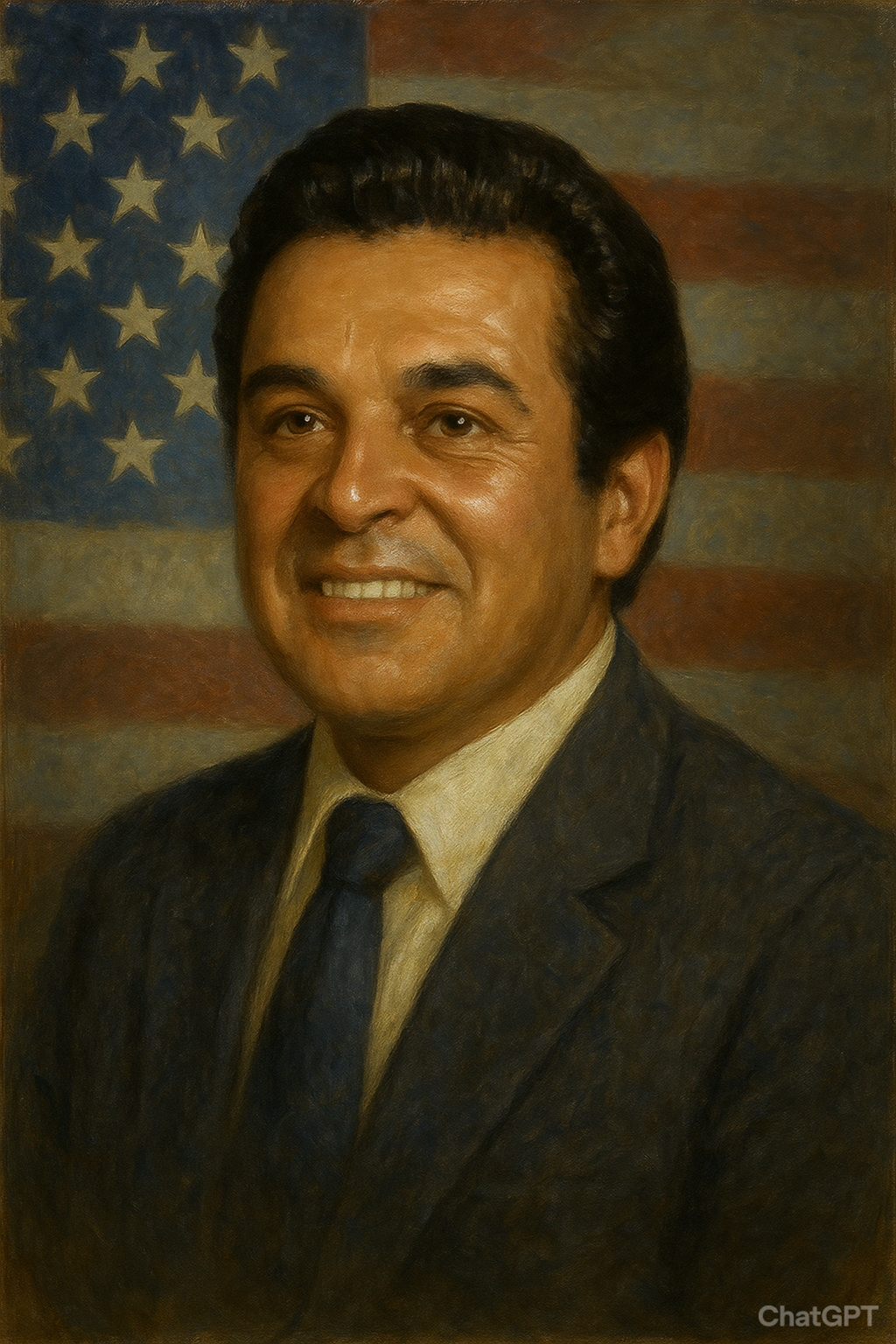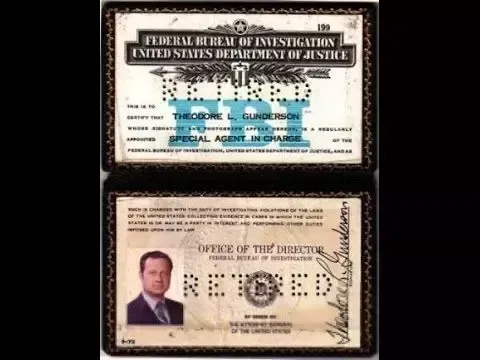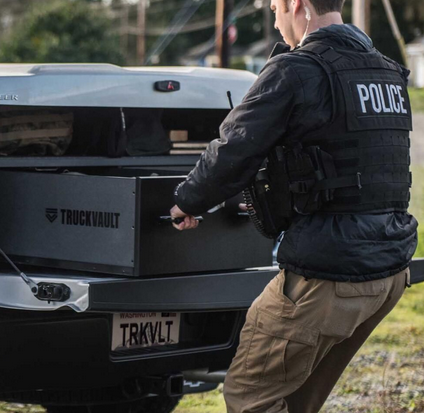Top Secret Background Investigation
1811 Special Agent Position
September 1, 2022

Introduction
The federal background investigation process is among the most misunderstood and talked about topic by potential applicants. Adding to the confusion are the legions of armchair warriors, inaccurate forums, commercial sites and rejected candidates that further obfuscate the process. The below post outlines the general background process for Special Agent candidates and hopefully takes away some of the confusion. Like most things in the federal government, the background investigation is governed by a bureaucratic process and understanding the sequence will help take away the anxiety.
The full background investigation is typically initiated AFTER a tentative selection offer is given to the applicant. This means that once applicants complete the applicable tests and interviews, they will be given a tentative job offer contingent upon the successful completion of the background investigation, medical exams and final selection review.
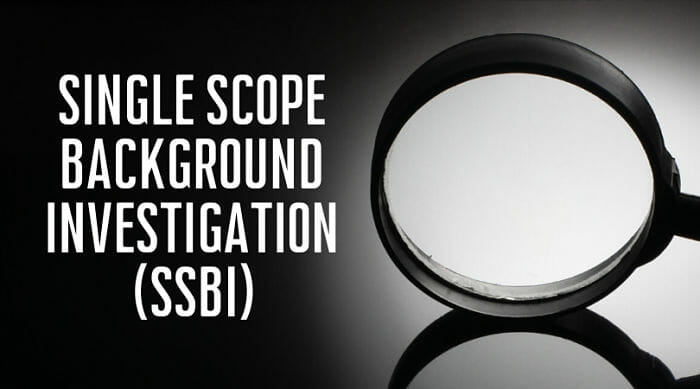
Single Scope Background Investigation (SSBI)
The federal government has three basic level of clearances, namely
CONFIDENTIAL,
SECRET and
TOP SECRET. With limited exceptions, most 1811 Criminal Investigative services now require all Special Agents to be
eligible
for a
TOP SECRET Clearance. This requires the completion of a Single Scope Background Investigation (SSBI). A person with a
TOP SECRET clearance is also able to access the lower level
SECRET and
CONFIDENTIAL level information. Based on the agency and the access needed, some Special Agents will also have to get the
Sensitive Compartmented Information (SCI) endorsement. Each clearance level has varying requirements and timeframes for background completion, as well as ongoing responsibilities for the clearance holder (i.e. reporting foreign travel).
The Single Scope Background Investigation (SSBI) is reserved for employees requiring a TOP SECRET security clearance and access to sensitive compartmented information (SCI). Once the federal government completes the SSBI, the completed case is referred to an adjudicator for review. A successful adjudication will then typically result in a
TOP SECRET clearance. The level of scrutiny involved in an SSBI makes it one of the most time consuming and detailed investigations.
The scope of the SSBI investigation typically goes back 10 years for general information concerning finances, education, personal and professional activities. The investigators will also check personal information such as relationships and character references. Some of the investigative techniques involve running checks to verify:
- The date & place of birth
- National Agency Check into the Department of Defense agencies, FBI, and other databases to see if any derogatory information exists.
- Spouse or cohabitant check to determine allegiance, associations and other factors that a close relationship might bring.
- Credit checks provide more information about the applicant. This query into the major credit trackers can verify residences, identity, financial situations, relationships, patterns and much more.
- Local law enforcement check to identify any arrests or activities involving law enforcement.
- Public records verification to determine associations and activities the applicant may be or has been involved in.
- Citizenship verification to ensure applicant is a US citizen and eligible for a security clearance.
- Written Inquiries are provided to education and employment institutions and references to verify education level and employment.
- Interviews are conducted based on references provided by the applicant. These interviews include neighbors, former spouses and the actual applicant.
In order to get applicants into an academy class quicker, it is not uncommon for agencies grant "Interim" clearances to Special Agent candidates. This is typically done after basic criminal checks and personal history checks (i.e. credit, education, citizenship). However, a favorable final adjudication is required and candidates must pass final adjudication in order to retain their position.
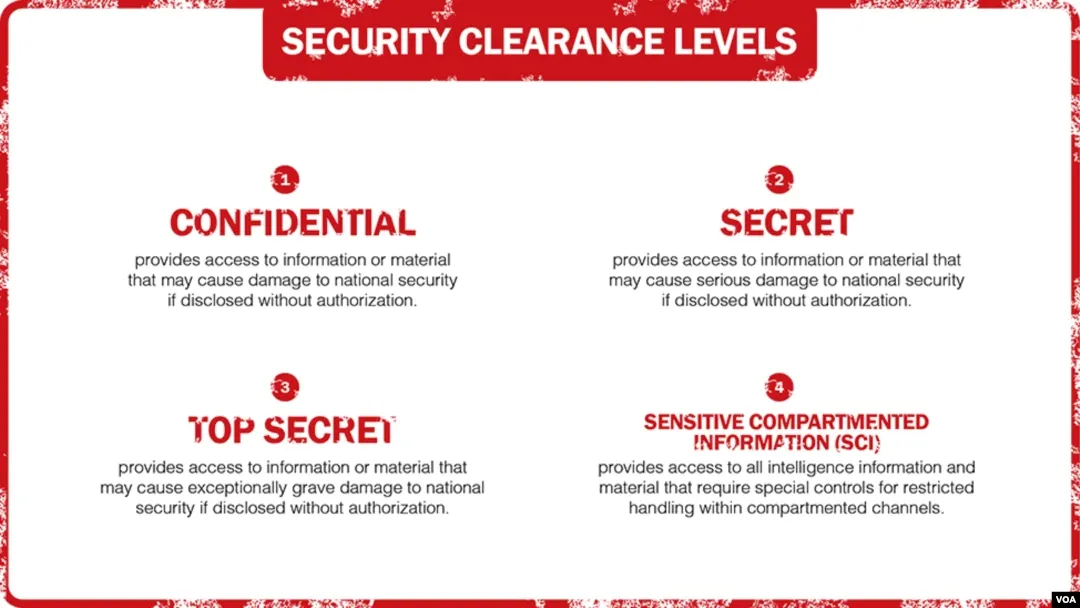
The SF 86 - Questionnaire for National Security Positions
The foundation of the background investigation is the SF 86 Form, which is completed by the Special Agent applicant. This is an exhaustive form that requires an incredible amount of detail, to include family history, past residences, associations, and workplaces. This form should be carefully and COMPLETELY filled out as any mistakes or omissions will result in additional delays and possible rejections.
Once the form is completed by the applicant, it eventually makes its way to background investigators in the field. These federal background investigators will use the SF-86 as a roadmap to verify and further explore an applicant's history. Most of the background investigators are either retired law enforcement or future law enforcement candidates. These field investigators are also responsible for completing the required in-person applicant background interview. I encourage all applicants to be extremely responsive to their assigned background investigator's request for information and to always be professional during interactions.
I also suggest all Special Agent applicants review the SF-86 form and start collecting the information ASAP. Some of the required information may take time to obtain. Many agencies have now transitioned to an online portal, however, using this form as a benchmark will significantly help with completion.

Additional Components of the Background Investigation
It is not uncommon for most 1811 federal law enforcement agencies to also require the below additional screening for their law enforcement positions. The rules and requirements may vary but applicants should be prepared to pass all the phases below:
Drug Screening
The ongoing or recent abuse of both legal and illegal narcotics will likely be an instant disqualifier. Additionally, ongoing use of marijuana (i.e. within 2 years) is typically not looked upon favorably, regardless of its legal status in your state. The best advice for serious candidates is to avoid this lifestyle and/or stop immediately if want to have a shot at a federal law enforcement career. The use of adderall or ecstasy has become a common disqualifier for college students. In general, the longer time has passed, the more likely an applicant may be able to "explain away" this issue.
For example, if a 30-year-old applicant reports that he/she used marijuana during high school and tried out ecstasy once during a party in college, this could potentially still lead to a favorable adjudication due to the significant amount of time passed. However, if the same applicant reported both ongoing marijuana and ecstasy use, that candidate will likely be rejected immediately.
The likelihood of favorable adjudication depends on the facts and circumstances of the events. Consequently, this issue is endlessly debated on online forums without a clear understanding of the methodology. In reality, an agency adjudicator must review the applicant and determine if he/she is suitable to hold a security clearance in the
present; which informs their willingness to accept candidates with drug use history.
Polygraph
The polygraph examination is simply a tool to gauge your honesty and suitability as an adult applicant. It is designed to verify the background investigation and catch any issues that were omitted (i.e. unreported major criminal conduct). It is also a subjective process so mistakes can happen. I would advise all applicants to be well rested before the polygraph interview and answer all questions truthfully (yes, it is that simple). Do NOT read about how to cheat the poly or attempt to use any deception techniques as it will negatively impact your results. In general, as long as you have not lied on your application, are not a spy or criminal, you should be ok. In many instances, you are given a second chance and worst case scenario, you can re-apply and/or apply to another agency without prejudice. I am constantly amazed at the misinformation and rumor that is endlessly debated on various forums.
The below diagram is a good visual representation of the security clearance process:
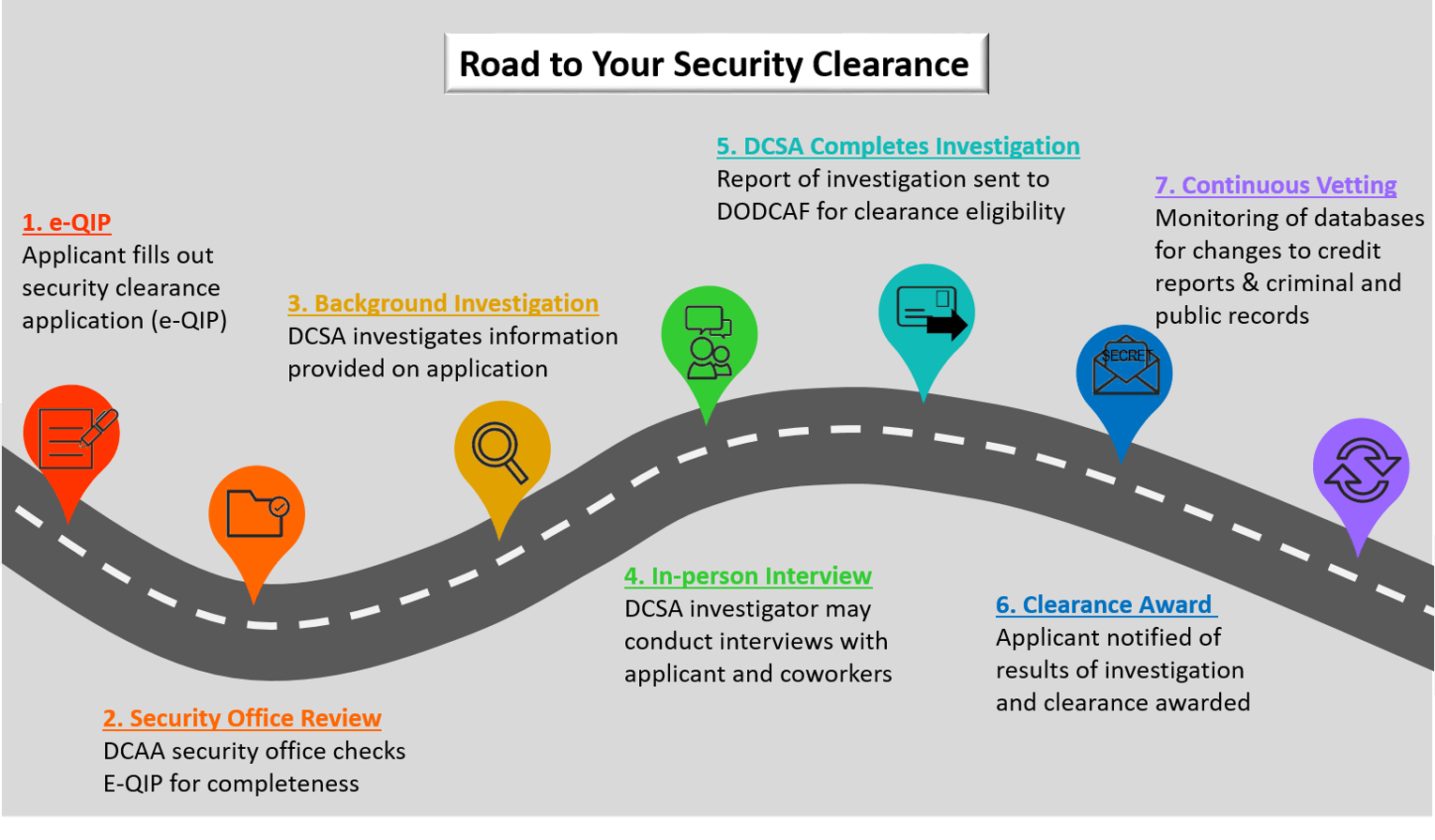
Automatic Disqualifying Issues
It is important for all applicants to understand that there are some automatic disqualifiers that cannot be rectified. Some agencies have now smartly incorporated basic screening questions at the start of their application process to weed out such ineligible applicants. In general, the below will permanently disqualify one from obtaining a Special Agent position:
- Inability to maintain a valid driver's license: Since all Special Agents must be able to drive a government vehicle, this requirement is non-negotiable.
- Conviction of a felony, sex crime and/or a domestic violence misdemeanor: Applicants for a Special Agent position must not have been convicted of any felony charge, which results in firearms ineligibility. In accordance with the Lautenberg Amendment to the Gun Control Act, a person convicted of a misdemeanor crime of domestic violence may not possess a firearm. Applicants must be able to certify that they have not been convicted of any such violation, and that they are not otherwise prohibited from possessing firearms.
- Lying or omitting critical facts during background Investigation: If at
any point during the application process an applicant is caught being untruthful, this will result in immediate disqualification. Many applicants have been disqualified in this manner. Be truthful. If you foresee problems that may arise during the background process, your best option is to be forthcoming and honest. Candor is indeed your best friend and only hope of success in this situation! I cannot stress this enough!
Any revealed attempts to conceal negative information will likely result in dismissal from the application process.
Other Potential Disqualifiers
If any of these below issues are in an applicant's background and remain unresolved, they will likely or potentially result in a background failure. Candidates with these issues must fix them prior to the final adjudication process in order to receive a favorable adjudication.
- Default on a federally insured student loan
- Failure to file income tax returns
- Failure to register for the Selective Service (male applicants)
- Criminal associations
- Offensive social media posts
- Excessive debt or bankruptcy issues
- History of civil lawsuits
- History of mishandling classified material
Other Background Investigation Failures
It is standard procedure for background investigators to get a copy of all other previous security clearance investigations, regardless of originating agency. Be prepared to truthfully answer the issues that came up and likely resulted in a clearance denial. As long as you are honest, you have a *chance* in passing. Additionally, if you fixed the past issue (i.e. poor credit history) then it is logical and likely that you will pass the background process.
Keep in mind that the focus on the background issues can vary depending on the agency. IRS Criminal Investigation has a low tolerance for anyone who fails to file tax returns, whereas that may be an easily fixable issue for a DEA applicant. Conversely, excessive debt is not acceptable for FBI or NCIS applicants due to their high risk of blackmail by foreign counterintelligence agencies. Relatedly, HSI applicants are heavily screened for criminal cartel associations due to their mission, whereas that is not typically a concern for OIG applicants.
The below "Anatomy of a Background Investigation" is a good
analogy for the detailed process used by the federal government:
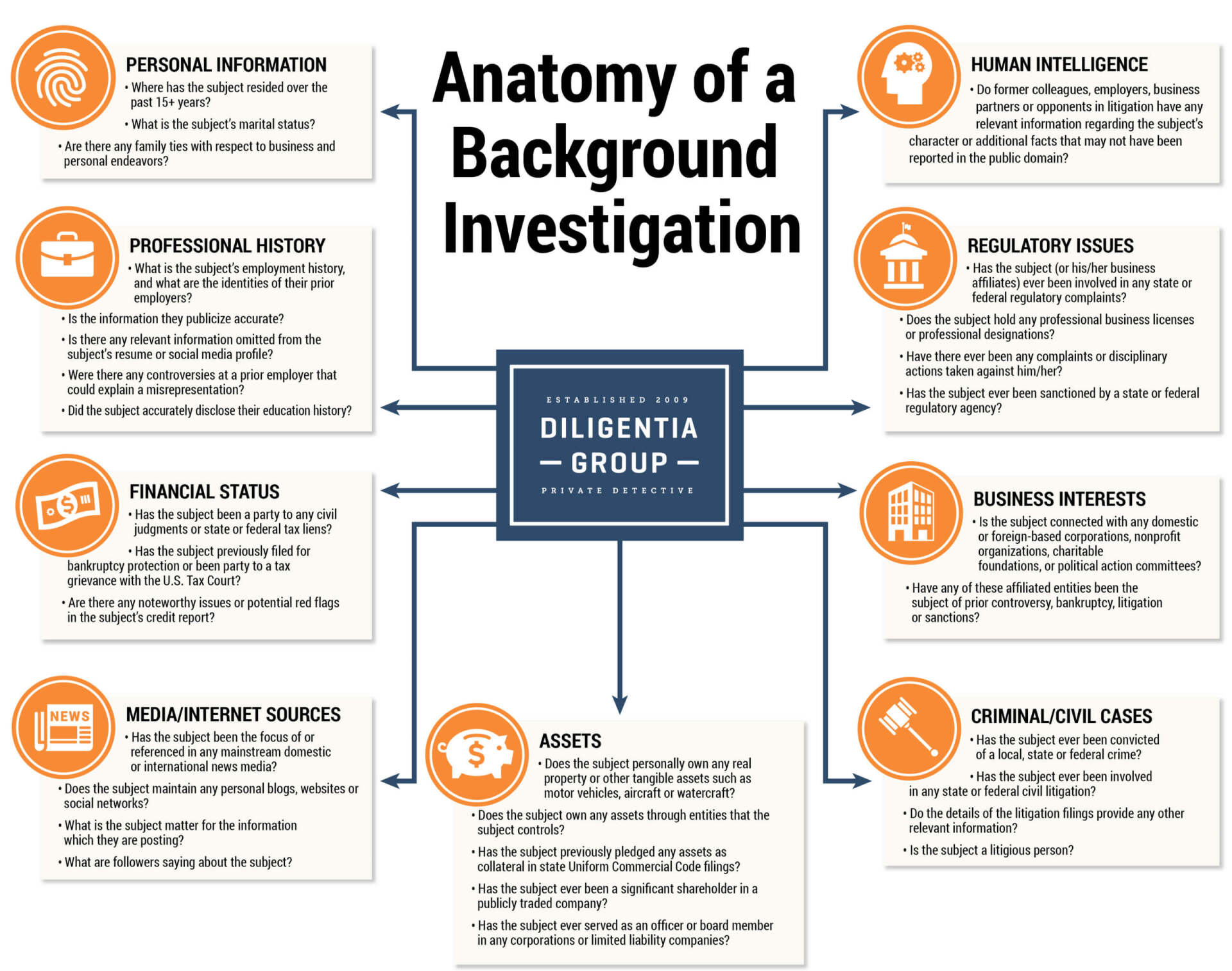
Addressing Issues
Depending on the issue, most agencies will initially ask an applicant to further explain a potential anomaly during the background or adjudication process. For example, if you reported a default on a bankruptcy, the adjudication office may ask you to further explain the circumstances and current status. Once an applicant provides a response, it is taken under further consideration. However, I would highly encourage applicants to provide this additional detail from the onset. A detailed and early disclosure of such issues will demonstrate candor and show a candidate has moved past the problem, thereby demonstrating current suitability for a clearance. It will also help avoid any delays in the background investigation process. Candor is your friend!
Adjudication Process
Adjudication refers to the final review decisions regarding eligibility for access to classified information and the process to assess a candidate’s trustworthiness. The adjudication examines a sufficient period of the candidate’s life to make an affirmative determination that the person is an acceptable security risk; the number of years in the candidate’s life covered by an investigation increases as the position’s level of security increases. The assessment considers factors that could cause a conflict of interest and place a person in a position of having to choose between commitment to the United States, including commitment to protect classified information, and another compelling loyalty. The clearance process for Secret level access uses an investigation called the National Agency Check with Law and Credit that goes back five years, while the standard 1811 clearance process for Top Secret uses a Single Scope Background Investigation that goes back ten years.
Various reasons exist why someone may be denied a final security clearance. Some of the most important factors in an investigation are the individual’s honesty, candor, and thoroughness in the completion of their security forms. There are 13 adjudicative guidelines that have been established for making these individual assessments under 5 CFR 731.202 (b). The guidelines include allegiance to the United States, foreign influence, foreign preference, sexual behavior, personal conduct, financial considerations, alcohol consumption, drug involvement, psychological conditions, criminal conduct, security violations, outside activities, and misuse of information technology systems.
Under 5 CFR 721.202 (c), the process is an evaluation of the whole person, weighing a number of variables and taking into consideration mitigating factors, such as whether the candidate voluntarily reported the information, sought assistance with the matter, resolved the security concern, or demonstrated positive changes in behavior. As a result, negative information about one area of concern may not be sufficient for an unfavorable determination. Despite this approach, a security clearance will likely be denied if the information available shows a recent or recurring pattern of dishonesty, questionable judgment, irresponsible behavior, emotional/mental instability, or association with undesirable persons.
Formal Appeals
If an applicant is *formally* denied a security clearance, he/she will likely need to
hire a specialized lawyer to further appeal the issue. This should only be done if the denial was an obvious error or violation of law/policy. This is a costly and uphill battle and expect the process to take a 2+ years.
Top Initial Background Investigation Disqualifiers
Based on a review of 2021 Security Clearance Denial Appeals, the following issues were the top reasons for background investigation failures reported by the Defense Office of Hearing and Appeals. This heavily involves military candidates but gives an overview of typical failures.
- Financial Considerations
- Personal Conduct
- Drug Involvement
- Foreign Influence
- Criminal Conduct
- Alcohol Involvement
Continuous Vetting Process
The federal government has now implemented a Continuous Vetting process for clearance holders in sensitive positions. This is designed to quickly detect potential vulnerabilities more efficiently than the traditional re-investigation process. Read More about
Trusted Workforce 2.0 and Continuous Vetting.
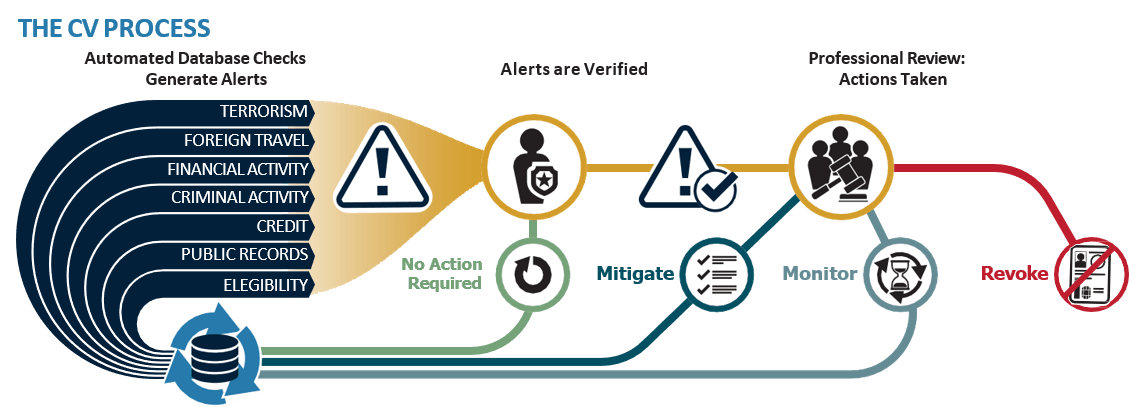
Security Clearance Agencies
Prior to 2019, the Office of Personnel Management (OPM), through its National Background Investigations Bureau, was responsible for performing the majority of background checks and overseeing 90% of the federal government’s investigations. Pursuant to an April 2019 Executive Order, the responsibility for conducting background checks was transferred from OPM to the Department of Defense (DOD). DOD created a new agency called the Defense Counterintelligence and Security Agency (DCSA) to conduct these investigations, which has been operational since the end of 2019. This change was made in an effort to address the huge backlog of cases that was causing very long wait times and was not intended to affect the requirements of the background check process. As of October 2020, a significant percentage of the backlog has been cleared and processing time has decreased, although it is still wise to complete the necessary paperwork as quickly as possible. While DCSA is now the primary office conducting background suitability investigations for positions within the Executive Branch, the Office of the Director of National Intelligence is in charge of security investigations for access to classified information and for sensitive positions.
Investigations that require record checks, reference interviews, or subject interviews are usually conducted by the field investigators, either federal agents or contract investigators. Some 1811 agencies have still retained jurisdiction to conduct their own investigations.
Advanced Polygraphs
There are some highly sensitive positions that require what is known as a
Counterintelligence and/or Lifestyle Polygraph. These typically apply to
extremely sensitive positions within the intelligence community and are
not
routinely applicable to new special agent candidates. However, if a Special Agent was assigned to a sensitive counterintelligence investigation during their career, a Counterintelligence or Lifestyle Polygraph would not be unusual.
Conclusion
Applicants should NOT be concerned about the "insider baseball" stuff about what agency completes the background or how to best "game" the process. Most of the online forums and commercial sites are a colossal waste of time. Additionally, each circumstance is unique and can result in a different response. Finally, applicants are not doing themselves any favors by attempting to seek answers regarding their personal situation from on open source forum full of applicant rejects and trolls.
If you read and comprehend everything in this post, then you have all the tools needed to understand and successfully navigate the federal background investigation. Additionally, each agency varies in their process but most are now following guidance set by the Defense Counterintelligence and Security Agency (DCSA).
Below are a few online resources that can better help you understand the Top Secret federal background investigation process:
- Defense Counterintelligence and Security Agency - My Background Investigation
- Podcast - Security Clearance 101
- DSS Security Clearance Explanation
- USA Jobs - Clearance Positions
- YouTube Explanation - Security Clearances

